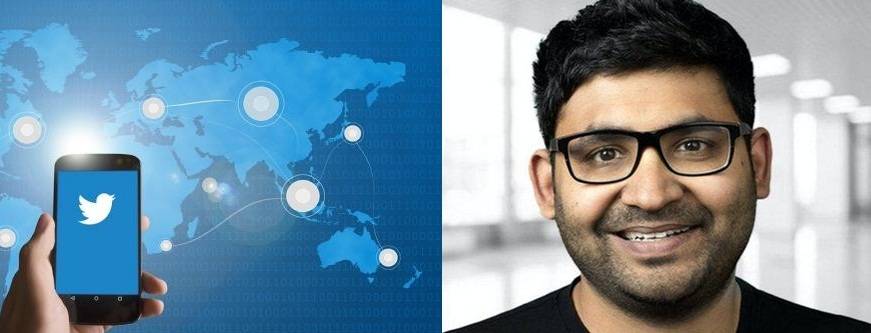Parag Agrawal ,as new CEO will be descending into the worldwide political controversies that have arisen during Dorsey’s tenure that have tested the limits of free speech, election propaganda and corporate control of public discourse ..writes Arul Louis
Twitter has appointed Parag Agrawal, who has pledged to “reshape the future of public conversation,” as its CEO succeeding Jack Dorsey, the embattled social media company announced on Monday.
The IIT Bombay graduate ascends to one of the most powerful roles in the social media universe that is facing criticism from different political forces around the world for its capacity to control discourses and while also being sometimes a conduit for disinformation.
He will face the challenges of navigating the political minefields of social media and setting right the company’s faltering financial performance.
Agrawal joins a select group of CEOs of Indian origin heading technology companies in the US.
They include Sundar Pichai, who heads Google and its parent company Alphabet, Microsoft’s Satya Nadella, IBM’s Arvind Krishna, and Adobe’s Shantanu Narayen.
Agrawal said, “I am incredibly energised by the opportunities ahead. By continuing to improve our execution, we will deliver tremendous value for our customers and shareholders as we reshape the future of public conversation.”
According to the Twitter announcement, Agrawal has a PhD from Stanford University and joined Twitter in 2011 becoming its Chief Technology Officer in 2017.
Dorsey said, “My trust in Parag as Twitter’s CEO is deep. His work over the past 10 years has been transformational. I’m deeply grateful for his skill, heart and soul. It’s his time to lead.”
Brett Taylor, who will be taking over as the Twitter board Chairman, said, “Parag understands Twitter and appreciates the company’s unique potential. He has been instrumental in tackling our most important priorities, including accelerating our development velocity, and I know he’ll hit the ground running to strengthen execution and deliver results.”
Twitter founder Dorsey, who is stepping down as CEO, has courted controversy in India and the US.
During a visit to India, he posed with a poster displaying a caste-based message, “Smash Brahminical Patriarchy”.
Later, Twitter dissociated him from the sentiments in the poster.
Twitter had posted a cautionary note on a video on the Ayodhya temple, “The following media includes potentially sensitive content,” but allowed without any caution a post from protesters against the temple containing offensive words.
Agrawal will be descending into the worldwide political controversies that have arisen during Dorsey’s tenure that have tested the limits of free speech, election propaganda and corporate control of public discourse, even as it has become the primary platform for governments, corporations and newsmakers to make their announcements first directly to the public, leaving most media to follow-up the posts.
Twitter has banned former President Donald Trump accusing him of creating a “risk of further incitement of violence” and questioning the legitimacy of the election of President Joe Biden.
But Twitter allows other controversial characters like Iran’s Ayatollah Ali Khameini and organisations like the Taliban to use its service.
Republicans have accused Twitter of censoring conservative and right-wing voices, while Democrats have accused it of amplifying questionable right-wing points of view.
“Impartiality is our guiding principle,” Dorsey asserted at a Congressional hearing and
added, “We don’t consider political viewpoints, perspectives or party affiliation in any of our policies or enforcement decisions.”
In general, Twitter’s algorithm-driven serving of tweets is at the root of the controversies.
Twitter acknowledged recently that the right benefited more from “algorithmic amplification” than the left.
The announcement said that Agrawal had been “leading work to improve development velocity while advancing the state of machine learning across the company”.
That background gives him more insights into the intersection of algorithms and political and social discourses to deal with allegations of political and social partisanship.

Another challenge for Agrawal is that Twitter has not been able to monetise the nearly 400 million users to the same degree that some other social media platforms like Facebook has.
Twitter, which despite its ubiquity has not turned in the stratospheric stock performance of other tech companies like Facebook, and after closing at its highest mark of $77.06 on February 26, 2021, it was trading at the $46 range on Monday afternoon.
Twitter is also facing new challengers like ‘Koo’ in India, where Twitter has the third-biggest number of users at 22.1 million, behind the US and Japan.
Koo is trying to become an alternative to Twitter with its perceived control of the media by being more open to more points of view and reaching out to countries like Nigeria.

Leave a Reply